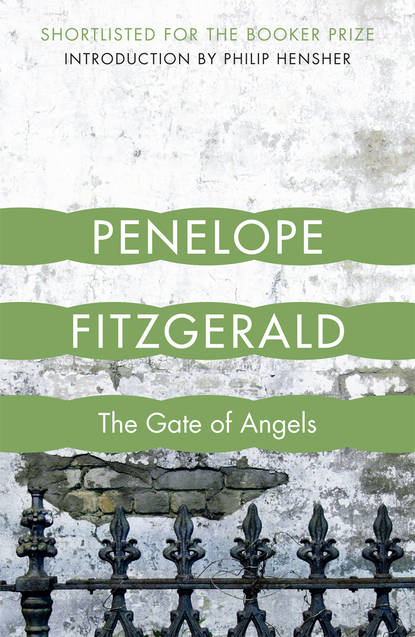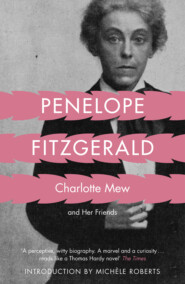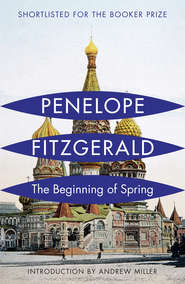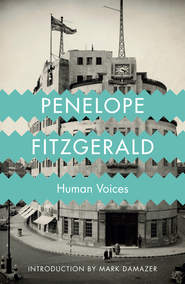По всем вопросам обращайтесь на: info@litportal.ru
(©) 2003-2024.
✖
The Gate of Angels
Автор
Год написания книги
2018
Настройки чтения
Размер шрифта
Высота строк
Поля
At the tender heart of The Gate of Angels is Fitzgerald’s most entrancing heroine, Daisy; a person who does not belong in Cambridge and who transforms it. The painful clarity of Daisy’s hard-won path out of extreme poverty through nursing, only to lose it again, is one of those moments where a novelist’s fierce personal conviction appears to be making itself felt. Only with the appearance of Hermione Lee’s biography of Fitzgerald in 2013 did it become apparent with what good reason Fitzgerald feared extreme poverty, and what experience she had of losing everything. Daisy is brought together with Fred in the most deliberately arbitrary manner; their worlds do not belong together, and their collision disrupts all hierarchies and conventions. They are placed together, thanks to Daisy’s convenient wedding ring, naked in a double bed, and their relationship proceeds from there. A nice touch; Fred’s nakedness is less alarming to Daisy than her acknowledgement of it is to him.
What brings Daisy and Fred together is a clarity of vision, interrupted in Fred’s case by a storm of emotion. Both of them have been forced to see things lucidly by economic circumstances; Fred’s watch ‘was a silver watch, belonging to his father, given to him when he took up his appointment, and yet not quite given to him either, since when he went back on vacations his father tended to borrow it back’. In his many jobs at his college ‘… assistant organist, assistant librarian, deputy steward and assistant deputy treasurer … the words assistant, deputy, and so forth didn’t mean that there was necessarily anyone above him to do the work, only that he must do it without being paid’. Daisy has no illusions; south London has stripped her of those, and she rides the tram with a hat-pin and someone else’s wedding ring, against assault. When they meet in extraordinary circumstances, they are free to see the world as it really is; that neither of them really do is witness to the transformative power of the encounter. Fred’s confusion is immediately apparent, and Daisy seems to understand more at first: ‘Fred was appalled. “Don’t you know what you are to me?” he asked. Daisy considered. “I suppose I do know, Fred. To tell you the truth, a child of six would notice it.”’ But her delusions take longer to unwind, and shock her more thoroughly.
They are at home, with their capacity for precision and clarity, in the world of Fitzgerald’s novels. Fred remarks at one point that the word of a writer of fictions is not to be trusted; but he only partakes in, and does not absorb, Fitzgerald’s style. It is a matter not just of observing emotions exactly, but of placing their drama within an exactly notated physical context. In one virtuoso passage, Mrs Wrayburn considers her life:
Every day (in addition to cups, plates and dishes) demanded toast-racks, egg-cups, egg-cosies, hot water jugs, hot milk strainers, mustard-pots manufactured of blue glass inside, metal outside, silver fruit knives (as steel in contact with fruit-juice was known to be poisonous), napkins with differently coloured rings for each person at table, vegetable dishes with handles in the shape of artichokes, gravy boats, dishcovers, fish-forks with which it was difficult to eat fish (but fish-knives were only for vulgarians), muffin-dishes which had to be filled with boiling water to keep the muffins at their correct temperature, soup-plates into which the soup was poured from an earthenware container with a lid, cut-glass blancmange dishes, knife-rests for knives, fork-rests for forks, cheese dishes with lids the shape of a piece of cheese, compotiers, ramekins, pipkins, cruets, pots.
The exactness of detail doesn’t serve to suggest lavishness, but an array of things which their owners’ devotion to the unseen and the speculative seeks to escape. For us, however, it creates a world of credibility. The particularity of Fitzgerald’s observation, her research and her invention makes even the oddest and most unexpected actions of her plot believable. Only afterwards does the reader wonder – can cows be upturned by the wind like that? Has the novelist invented a St Angelicus College? Can a period detail as perfect as the substance containing Health Plasmon which ‘may be combined with a variety of substances to make nourishing dishes without the necessity of cooking them’ be anything but the product of research rather than imagination? (‘“It looks like cornflour to me,” said Daisy.’) The world is made up of fork-rests and Plasmon and invisible particles, exactly described. Are they real? Are they speculative? The Gate of Angels is a beautifully precise exercise of the novelist’s most illusionary skill, and a witty meditation about the practice of that art in the first place.
The obvious interpretation of Fitzgerald’s remarkable career, promoted by her, is that after four novels exploring aspects of her own life, she turned to the historical novel, and constructed remote and peculiar realities. There is something in that, but another reader might contemplate the ways in which she found possibilities to explore the peculiarities of love between the unalike in historical circumstances. Only in these novels did she find a way to pursue a convincing love affair in fiction, and all these late love stories are between impossible partners, whose link is somehow broken from the start. What events lay behind this development is impossible to say, and she could clearly only explore the subject once it was removed from her immediate circumstances. What remains, in these extraordinary, impassioned and exact novels is a world where thought and body, the solid and the unseen, the highest intellect and the basest behaviours and feeling unify in ways never envisaged before. Cambridge has always been very much one of the places where such unifications take place. It took the sharp eye and long contemplation of a Penelope Fitzgerald to give it such concise expression, however.
Philip Hensher
2013
Part One (#ulink_43999b10-f616-5de1-b0a0-50638bcd6e4b)
1 (#ulink_f0f45e9a-911f-593f-aab9-eb9f84dd7615)
Fred’s Three Notes (#ulink_f0f45e9a-911f-593f-aab9-eb9f84dd7615)
How could the wind be so strong, so far inland, that cyclists coming into the town in the late afternoon looked more like sailors in peril? This was on the way into Cambridge, up Mill Road past the cemetery and the workhouse. On the open ground to the left the willow-trees had been blown, driven and cracked until their branches gave way and lay about the drenched grass, jerking convulsively and trailing cataracts of twigs. The cows had gone mad, tossing up the silvery weeping leaves which were suddenly, quite contrary to all their experience, everywhere within reach. Their horns were festooned with willow boughs. Not being able to see properly, they tripped and fell. Two or three of them were wallowing on their backs, idiotically, exhibiting vast pale bellies intended by nature to be always hidden. They were still munching. A scene of disorder, tree-tops on the earth, legs in the air, in a university city devoted to logic and reason.
Fairly was making the best pace he could. He did not much like being overtaken by other bicyclists. No-one likes being overtaken by other bicyclists. The difficult conditions (some were blown over) turned the Mill Road into a display of pride.
The year was 1912 so that Fairly’s bicycle, a Royal Sunbeam, must have been thirteen years old. It had Palmer tyres, which left a pattern of long lines like wires, on a wet, glass-clear road. He felt better when he overtook a man who, from the back, might have been someone he knew slightly, and turned out in fact to be someone he knew slightly, a lecturer in the Physiology of the Senses, who called out:
‘They can’t get up again, you know, poor beasts, poor brute beasts!’
He was shouting. It was like sea-bathing. Everyone in turn must swerve to avoid a hat which had blown off and was darting about, crushed and deformed, at random. A whole group went by, then one of them detached himself and was riding alongside.
‘Skippey!’
He couldn’t hear what Skippey said, so dropped back and came up on the other side, the lee side.
‘You were saying?’
‘Thought is blood,’ Skippey replied.
The first man, the acquaintance, caught up once more. They were three abreast.
His words streamed with the wind.
‘I was in error. It’s sheep that can’t get up, sheep.’
‘The relief of it!’ Fairly called back. Now that the rain had stopped for a moment the drops blew off the trees as hard as handfuls of gravel.
At Christ’s Pieces Fairly turned right, meeting the wind head-on, and made landfall at his own college, St Angelicus.
Angels was, as it is, a very small college. Jokes about the difficulty of finding it, and the troubles the inmates were put to in fitting into it, had been made at any time for the past five hundred years. The twentieth century had opened by increasing these difficulties – for example, in the case of the Fellows’ bicycle shed, crouched like a peasant shack on the inner wall, close to the Founder’s Entrance. Peasants, however, would have built this, or any other shack, out of the way of the wind and rain, whereas the bicycle shed, on three sides, was open to both. And then, who might have arrived there before you? The college tutor of Angels was, and had been since the Second Boer War, a volunteer with the East Anglian Territorial Bicycle Corps, and, largely for reasons of vanity, rode at all times his specially adapted safety machine with its leather case for signal flags, rifle rest and spare water barrel. It occupied its own space and three-eighths of the next one, so that if you were the last man in, as Fairly appeared to be this evening, there was nothing for it but to manhandle your own bicycle onto a large iron hook fixed by the porter in the upper part of the wall.
Rain streamed down Fairly’s face, gathered at the tip of his nose, and fell. The shed was not so much like a shack, perhaps, as like the dodger on a ship’s bridge, of which one could only say that it was just about drier inside it than out. One step into the dusk, though, and he was through the Founder’s Arch and then into the inner court, with its one great walnut tree. Here, cut off completely, the wind could hardly be felt. Feeling as though he had been stunned, or dreaming, and was still dreaming, he began a short diagonal walk across the grass to get to his own rooms in the north-west corner. From the larger darkness under the trees a patch of darkness detached itself. It was the Master of the College, his gown scarcely adrift in the quiet airs of the Court of Angels.
The Master was blind. Fairly hesitated. After thirteen years the Master might have been expected to know the ins and outs of his little college, and he did know them. Probably he had paused under the walnut tree to sense what the crop was likely to be. It was an old sort, a Cornet du Périgord, which flowered late.
The Master called out, scarcely raising his voice, however. ‘This grass is reserved for the Fellows of this college. Should you be walking on this grass?’
‘Yes, I should, Master.’
‘But who is it?’
‘It’s Fred Fairly.’
‘Fairly, didn’t you have an accident? An accident quite recently?’
‘Yes, I did.’
‘On your bicycle, or off your bicycle?’
‘I suppose, both.’
‘I hope you weren’t unwise enough to go to hospital?’
‘I’m all right now, Master.’
‘Please take my left arm.’
This had to be done in a particular way, laying two fingers only on the forearm. It was the Master, however, who did the steering, slowly round and once again around the great tree trunk. He said quietly, ‘You’re very wet, Fairly.’
‘Yes, Master, I’m sorry about that.’
‘Now, tell me, have you made up your mind on the most important question of all?’
‘You’re talking about my religious beliefs?’
‘Good God, no!’
A rectangle of light opened in a wall and the Senior Tutor came out and took affectionate charge of the Master, who did not need it in the least.
‘Senior Tutor, just one or two points. In the first place, Fairly is very wet, for some reason. Where does he keep?’
‘I think, in the north-west corner.’
‘And then, Senior Tutor, there are kittens somewhere on our premises, very young ones. I heard them distinctly. As with all mammals, their first sounds are angry, the pleading note comes later.’
‘Possibly in the kitchens,’ the Senior Tutor said. ‘I shall speak to the Steward.’
As on Mount Athos, no female animals capable of reproduction were allowed on the college premises, though the starlings couldn’t altogether be regulated. There were no women bedmakers or cleaners of any age. These were very ancient regulations. Fairly continued on his diagonal. When he reached the bottom of his staircase he took off his Burberry, hung it on the ancient newel post and gave it one or two sharp blows to shake off the damp. Then he went up to the top floor, where he kept. On the way up he passed Beazley, the gyp. Beazley was short, like all the college servants, who were selected, probably, with this in mind. Fred had an arrangement with this man, which they had arrived at five years earlier when he had been appointed as a Junior Fellow, that Beazley wasn’t to ask whether his fire needed making up, because he was perfectly well able to make it up for himself, that he never wanted to order anything up from the kitchens, and that he didn’t want to be told that his messages, brought up from the porter’s lodge, were urgent.











